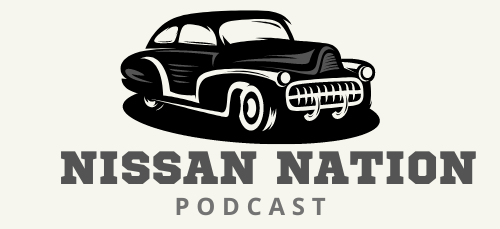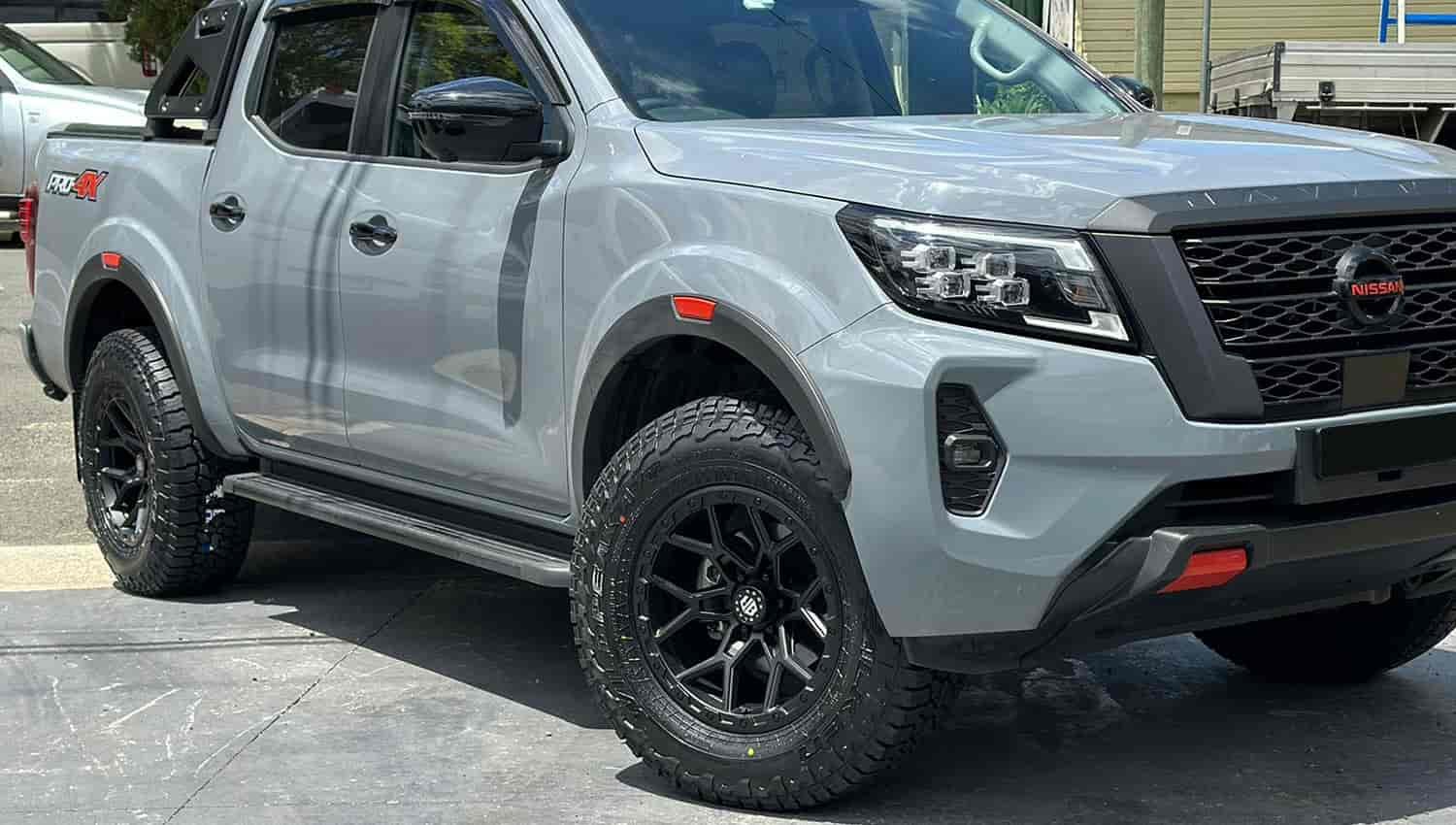If you’ve ever looked at a set of Toyota 6 lug wheels and wondered, “Will these fit my Nissan?”, you’re not alone. Many truck owners love experimenting with wheel swaps to achieve a custom look or upgrade their vehicle’s performance – but lug patterns and offsets can make or break that plan.
Toyota and Nissan both use 6-lug configurations on their most popular trucks, such as the Tacoma, Tundra, Frontier, and Titan. However, despite looking similar at first glance, small differences in bolt patterns, center bores, and wheel offsets can mean the difference between a perfect fit and a dangerous mismatch.
In this 2026 compatibility guide, we’ll break down exactly which Toyota 6 lug wheels fit Nissan trucks, which combinations to avoid, and how to measure bolt patterns correctly before spending a dime. Whether you’re shopping for used rims online or testing fitment in your garage, this article will help you make an informed, safe, and cost-effective decision.
Understanding 6 Lug Patterns on Toyota and Nissan
Before diving into compatibility, it’s important to understand what a “6 lug pattern” actually means. The term refers to a wheel that uses six evenly spaced bolts (or lugs) to secure it to the vehicle’s hub. But beyond the number of lugs, the bolt circle diameter (BCD) – also known as the bolt pattern – determines whether a wheel will physically fit on another vehicle.
Both Toyota and Nissan trucks commonly use the 6×139.7 mm (also called 6×5.5 inches) bolt pattern, which is a standard across many Japanese and American trucks. On paper, this makes it seem like Toyota and Nissan wheels are interchangeable. However, compatibility isn’t just about bolt count or diameter – it also depends on center bore size, offset, and hub design.
For example:
- Toyota Tacoma and Tundra typically feature a center bore of 106 mm.
- Nissan Frontier and Titan use a smaller bore around 100–101 mm.
This means a Toyota wheel might fit onto a Nissan hub only if the center bore is slightly larger or if hub-centric rings are used to fill the gap. The offset – how far the wheel sits inward or outward from the hub – also affects clearance for brakes and suspension components.
So, while both brands share a 6-lug setup, the subtle variations in measurements are what determine real-world fitment. Understanding these specs first will save you time, frustration, and possibly hundreds of dollars in replacement costs.
Comparison Chart: Toyota vs Nissan 6 Lug Wheels
While Toyota and Nissan trucks often share the same 6×139.7 mm bolt pattern, other wheel specs like center bore, offset, and lug nut seat type can vary from model to model. Understanding these subtle differences is crucial before attempting any wheel swap.
| Specification | Toyota (Tacoma, Tundra) | Nissan (Frontier, Titan) | Compatibility Note |
|---|---|---|---|
| Bolt Pattern | 6×139.7 mm (6×5.5″) | 6×139.7 mm (6×5.5″) | Identical pattern |
| Center Bore | 106 mm | 100–101 mm | Toyota bore larger – may cause loose fit |
| Wheel Offset (average) | +15 mm to +30 mm | +25 mm to +40 mm | Slight offset difference affects stance |
| Lug Nut Thread | M12x1.5 | M12x1.25 | Different threads – nuts not interchangeable |
| Hub Type | Hub-centric | Hub-centric | Both hub-centric, but sizing differs |
| Brake Clearance | Moderate | Slightly larger calipers (Titan) | Check clearance for larger Nissan brakes |
Quick Insight:
At first glance, these numbers might look close enough to assume compatibility – and that’s where most mistakes happen. While the bolt pattern is identical, the center bore and offset can make the fit unsafe or unstable if ignored.
If you’re considering using Toyota wheels on a Nissan, the safest options are to either:
- Use hub-centric rings to fill the gap between the hub and bore.
- Choose wheel spacers/adapters specifically made for the conversion.
Double-checking these dimensions ensures proper load distribution and avoids vibration, uneven tire wear, or even wheel failure at high speeds.
When Toyota 6 Lug Wheels Can Fit Nissan Trucks
Yes – in some cases, Toyota 6 lug wheels can fit Nissan trucks, but only under specific conditions. The key is ensuring that the bolt pattern, center bore, and offset fall within compatible ranges.
When They Fit Perfectly
- Same bolt pattern (6×139.7 mm): Both Toyota and Nissan trucks like the Tacoma, Tundra, Frontier, and Titan share this pattern.
- Slightly larger Toyota bore (106 mm): This means Toyota wheels can physically slide over Nissan hubs (100–101 mm) without interference.
- Close offset range: If the offset difference is less than 10 mm, the wheels will likely clear the brakes and fenders without rubbing.
For example:
- Toyota Tacoma (2005–2023) wheels often fit the Nissan Frontier (2005–2021) with little to no modification.
- Tundra wheels can sometimes fit Titan models, provided the offset is corrected with thin spacers.
Minor Adjustments That Help
- Hub-centric rings: Fill the 5 mm gap between Toyota’s larger bore and Nissan’s smaller hub for a snug fit.
- Wheel spacers (3–6 mm): Correct offset differences and prevent rubbing on suspension components.
- Test fit before mounting tires: Always bolt the wheel on loosely to check for clearance and brake fitment.
These tweaks can make the difference between a successful swap and a dangerous misfit. With careful measurement and the right accessories, Toyota 6 lug wheels can sit perfectly on many Nissan trucks – both looking sharp and driving safely.
Solutions: Adapters, Spacers & How to Make It Work
If your Toyota 6 lug wheels don’t fit your Nissan perfectly, don’t worry – there are safe and reliable ways to make them work. The key is using high-quality adapters or spacers designed for the exact bolt pattern and hub size difference.
1. Wheel Adapters
Wheel adapters are precision-engineered discs that bolt onto your existing Nissan hub and convert it to match Toyota’s specifications.
- Purpose: Corrects differences in center bore, offset, and lug thread pitch.
- Example: 6×139.7 to 6×139.7 adapters (hub bore 100 mm to 106 mm).
- Material tip: Always choose forged 6061-T6 aluminum adapters – they’re strong, lightweight, and safe for daily driving or towing.
- Safety check: Torque all lugs to manufacturer specs and recheck after 100 miles.
2. Wheel Spacers
If the bolt pattern matches but the offset is slightly off, wheel spacers can correct clearance issues.
- Use case: Adds a few millimeters of spacing (3–10 mm) to move the wheel outward, preventing contact with brakes or suspension arms.
- Warning: Avoid stacking spacers; instead, use a single high-quality hub-centric spacer.
3. Hub-Centric Rings
When the Toyota wheel’s bore is larger, hub-centric rings (commonly plastic or aluminum) fill the gap between the hub and wheel bore.
- Function: Ensures the wheel centers correctly and eliminates vibration.
- Tip: Choose metal rings for heavy-duty trucks.
With the right hardware and correct installation, your Toyota wheels can fit and function perfectly on a Nissan – without compromising safety or stability.
Expert Tips & Common Mistakes to Avoid
Even experienced truck owners can make simple mistakes when swapping wheels between Toyota and Nissan models. Following a few expert tips can save you from costly errors and potential safety issues.
Expert Tips
- Measure twice, buy once: Always confirm bolt pattern, center bore, and offset using a caliper or fitment guide before ordering wheels online.
- Do a test fit: Mount the wheel loosely without the tire to check brake and suspension clearance before full installation.
- Re-torque your lugs: After 50–100 miles, recheck the torque on all lug nuts to prevent loosening due to seating shifts.
- Invest in quality hardware: Choose reputable brands for adapters, spacers, and hub rings – cheap alternatives can warp or crack under pressure.
Common Mistakes
- Assuming all 6-lug wheels are the same.
- Ignoring offset and backspacing differences.
- Mixing lug nuts from different brands or thread pitches.
- Failing to balance wheels properly after installation.
A little preparation goes a long way. Properly matched and installed wheels not only look better but also ensure your truck handles safely on and off the road.
Conclusion
So, will Toyota 6 lug wheels fit Nissan? The short answer is sometimes – but not always. While Toyota and Nissan trucks share the same 6×139.7 mm bolt pattern, differences in center bore size, offset, and lug thread pitch can make direct swaps risky without proper adjustments.
If the wheels line up correctly and you use hub-centric rings or spacers when needed, many Toyota rims can fit Nissan trucks like the Frontier or Titan safely. But if you skip these small details, you could face vibration, uneven tire wear, or worse – unsafe driving conditions.
The best approach is to measure precisely, double-check compatibility charts, and invest in high-quality adapters if necessary. By doing so, you’ll get the clean, aggressive stance you want without compromising safety or performance.
Before you buy used Toyota wheels or try a swap, take a few minutes to confirm the specs – it’ll save you money, time, and a lot of frustration down the road.
Have you ever tried fitting Toyota wheels on your Nissan? Share your experience or fitment tips in the comments below – your insight could help other truck owners avoid costly mistakes.

